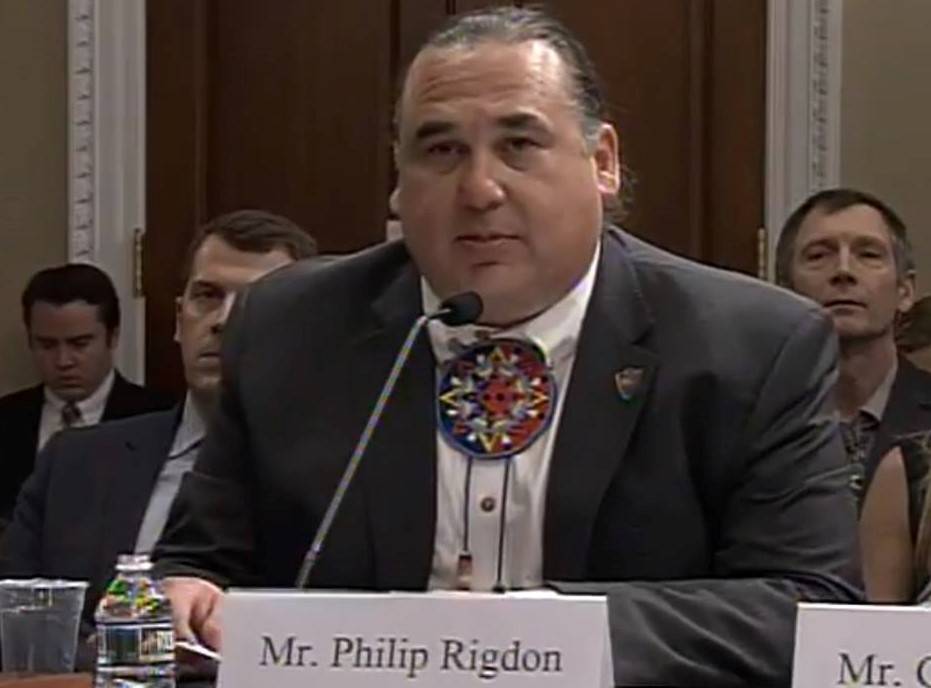The 42nd annual Indian Timber Symposium that opens in Ocean Shores next week will bring more than 300 people to an event that showcases some of the emerging practices to preserve, protect and prosper from use of forest resources by tribes across the nation.
As one of the original founders of the Intertribal Timber Council (ITC), the Quinault Indian Nation will host the Timber Symposium for the fourth time from Monday until Thursday at the Ocean Shores Convention Center and at the Quinault Beach Resort and Casino.
Quinault President Fawn Sharp is scheduled to give opening remarks to welcome participants on Tuesday morning June 4.
Phil Rigdon, ITC President, testified about the organization’s goals before Congress last September: “We believe the nation would benefit by looking to Indian forestry as models of sustainability. We can help move the country forward to create a healthier, sustainable future for our forests and natural resources.”
During the symposium, participants will attend workshops that blend tradition with technology, such as creating cedar baskets and a field trip to the Quinault Nation forest. The issues during workshops will include “Fee to Trust,” the Project Learning Tree Hands-on-Youth activities, and “Future Fire-Where Are We Going?”
Don Motanic of the ITC said the Indian Timber Symposium includes representatives from tribes from Florida to Alaska, along with many Northwest tribes, and it has a growing focus on youth development. It encourages the training and development of Indian foresters, with a large focus on youth education and resource sustainability.
“Over the past few years, we have had over 30 Native college students that attend the symposium and workshops now,” Motanic said. “Universities and tribes are bringing out their students.”
The event also raises money for scholarships that are awarded to students during the event, and the public is invited to participate in a raffle auction of some of the items on display, with proceeds going to the scholarships.
The symposium is designed to “facilitate communication from the perspective of tribes, the Bureau of Indian Affairs, private industry, legislative bodies, and academia on issues and concerns of current forestry management practices,” according to an overview of the event.
Symposium participants produce workshop summaries, which are submitted to the Assistant Secretary of the Interior and other federal agencies for follow‐up. Published final proceedings of the symposium serve as comprehensive documentation and are mailed to each participant and Bureau official. The Bureau, after receiving and reviewing the findings and recommendations, schedules follow‐up meetings with the Intertribal Timber Council Executive Board to discuss the responses of the administration.
One of the main issues on Thursday during the symposium will be how to develop the workforce for the tribal timber industry of the future. Using the Project Learning Tree session, forestry personnel learn how to use prepared kits they can take back to their tribes as teaching tools.
With 60 member tribes now listed as members of the Intertribal Timber Council, the Quinault Nation joins the Warm Springs, Colville, and Yakama as the original founding tribes that began the organization.
Motanic credits the organization with helping Congress to become more aware of sustainability issues, particularly related to issues of forest practices and fire danger.
“ITC has almost made an annual presentation to Congress just on how efficient the tribes are, and it’s brought about a beneficial partnership with the Forest Service, where the Forest Service can learn from the tribes and their management,” Motanic said.
One of the participants will be the Hancock Natural Resource Group, a Boston-based investment management company that last year agreed to a $313 million sale with the Muckelshoot Indian Tribe on thousands of acres of forest land in King, Pierce and Lewis counties. The tribe has said it plans to continue to use the land for timber production.
“They are going to be illustrating their unique partnership between the Muckleshoot tribe and their company,” Motanic said of the Hancock participants.
Members of the general public can stop by the Convention Center and visit the displays of items being raffled and see some of the exhibits.
“We encourage people to come in and see the booths we have and the different vendors,” Motanic said. “We have artworks and crafts there that people can actually submit a bid on.”



